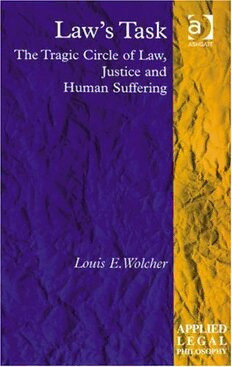
Law's Task (Applied Legal Philosophy) PDF
278 Pages·2008·1.933 MB·English
Most books are stored in the elastic cloud where traffic is expensive. For this reason, we have a limit on daily download.
Preview Law's Task (Applied Legal Philosophy)
Description:
We have just been given the single most important contribution to the philosophy of law in our (globalized and universally technological) time. Wolcher's second opus, while more modest in its overall goals than his first work, performs a dual philosophical motion, and in doing so opens a new space of thinking in which legal philosophy becomes philosophy itself. This, then, is the book's ultimate success: to counter the trend to specialize discourses beyond recognition of their origins, and to make law a philosophical question without falling into the trap of anchoring it in a self-evident status.
On the way to this achievement, Wolcher performs a difficult dual task. On the one hand, he presents us with a phenomenology of human suffering that culminates in what he calls "ethical distress" - a clear sight of the universality and profound tragedy of human suffering, unmitigated by any veiling notions of the division of suffering into "deserved" and "undeserved" suffering. On the other hand, Wolcher deconstructs the meaning of the law from a quasi-Wittgensteinian perspective in what must surely be the most ruthless realism possible. By rendering a complete and extremely dense exposition of the "magical view of language" that is inherent in the grounding and self-rationalization of the law, he does away with law's illusions about itself.
Tying these two projects together, and presenting it as one (to expose the law as an obstacle of our view of suffering), Wolcher ends with a comparison of law and religion. He does not go quite as far as claiming that the law is the modern secular religion but leaves us with a reprise of "ethical distress" as the moment of recognition that may be bitter but necessary for us to continue any project of thinking or justice or justice through thinking.
See more
The list of books you might like
Most books are stored in the elastic cloud where traffic is expensive. For this reason, we have a limit on daily download.
